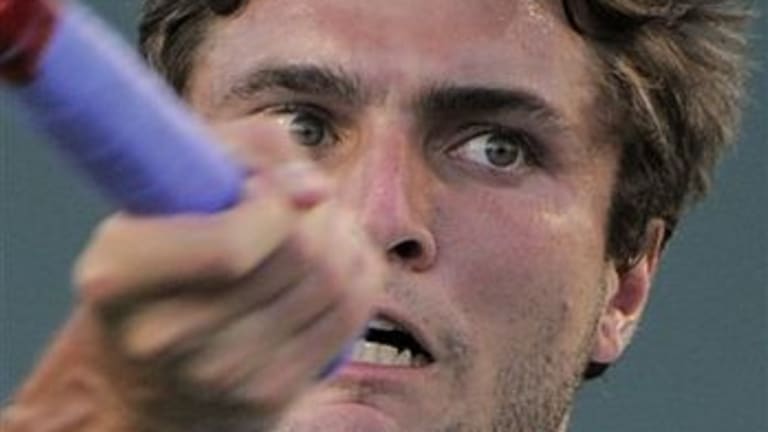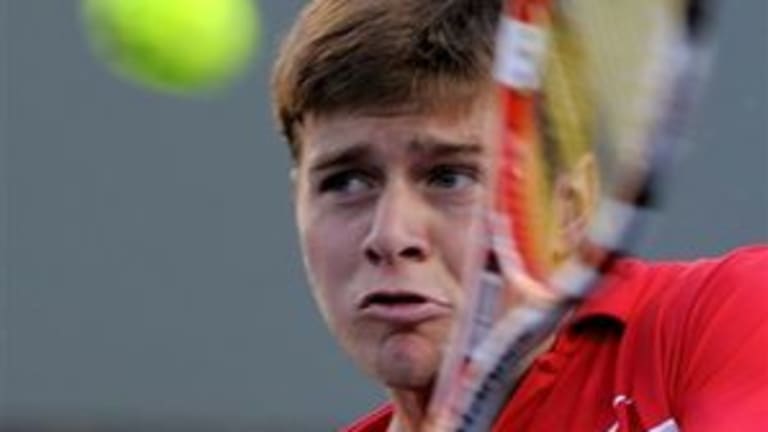INDIAN WELLS, CALIF.—The lights went on in Stadium 2, and the crowds came down from the big arena. Over there, as we could tell from the roars of the last hour, Roger Federer had just come back to beat Thomaz Bellucci.
Over here there was another comeback on, this one by American Ryan Harrison. The first two sets of his fourth-rounder with Gilles Simon had been violently up and down. The lean and crafty Frenchman posed a tricky problem for the 19-year-old: He could run just about everything down that Harrison threw at him, but, seemingly on a whim, he could also drill a forehand into the corner or make a delayed dash to the net when least expected. Harrison spent much of the match trying to find the fine balance between appropriate aggression and appropriate patience. Unable to hit through Simon, he eventually settled for patience. That's part of the reason the two of them went on to duel for three hours.
But Harrison really only started to play well when he stopped thinking and began to go on instinct. Harrison loves to talk tactics, but he’s an athlete and a scrambler and a fighter at heart, and it was his survival instincts that helped bring him back from 2-5 and match point down in the second set. That and a friendly choke from Simon, who missed an overhead on his first match point, and tightened up on his next two. By the time Harrison had won his fifth game in a row to win the set 7-5, the high desert sky had gone dark, the lights were on full blast, the seats were full, and there was an anticipatory buzz in the air. It felt like we were in for a Ryan Harrison moment.
How could Simon avoid it? One point from victory a few moments earlier, he was now six games away, maybe 10 games away. The 27-year-old had been there before, though, and he turned the momentum back around tonight with one shot. At 1-1 on Simon’s serve, Harrison reached break point with a skidding crosscourt passing shot from his shoe-tops—a vintage Harrison winner if there ever was one. At break point, the two had what may have been the longest rally of a match. Harrison moved Simon out of position, but Simon went for it all with a forehand and put the ball smack on the baseline. Harrison didn’t win another game. The fans never got their moment.
Still, while it didn’t wind up to its expected apex, there was a lot to enjoy in this hard-fought, imperfect match. There was Simon’s obvious battle with match-ending nerves. Cool and confident until the final moment of the second set, he missed that overhead at match point and immediately began talking a blue streak in French at his coaches. It was a bad sign: His lead evaporated moments later.
Something similar briefly happened in the third set. After settling down and playing brilliantly to earn a 3-1 lead, Simon started his next service game by sneaking a quick look back at his coach as he began his motion. Also not a good sign. He started playing tentatively right away and was nearly broken. Whatever his vulnerabilities, however, Simon remains an easy player to watch. Consistent without being repetitive, varied without being perverse about it (à la Bernard Tomic or Alexandr Dolgopolov), he makes timing seem as exciting as anything else in the sport. I just wish he won more.

